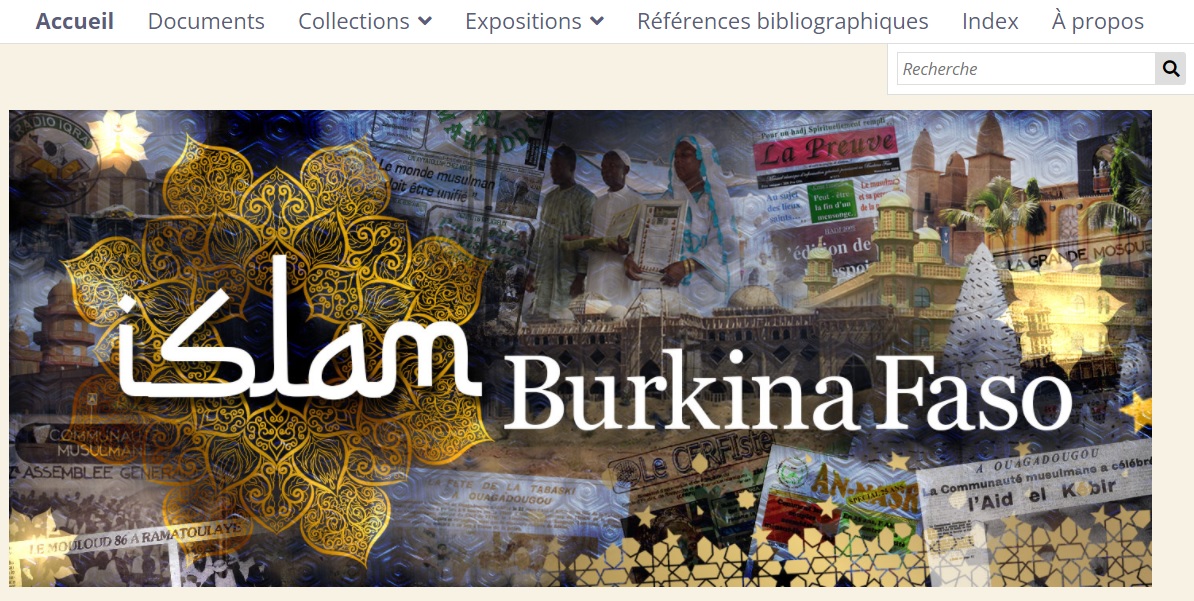The Islam Burkina Faso Collection
Promises and Challenges of Digital Humanities
DOI:
https://doi.org/10.51185/journals/rhca.2021.e610Keywords:
digitial humanities, archives, press, digitalization, islam, OmekaAbstract
This article reflects on the unprecedented opportunities that digital technology offers for developing new methods of research and data dissemination on the history of Islam in West Africa, as well as some of the methodological, technological, and ethical issues raised by such initiatives. At the center of these considerations is the Islam Burkina Faso Collection. This open access digital database project, which I launched in 2021 and which is hosted by the George A. Smathers Libraries at the University of Florida, currently contains over 2,500 archival materials, newspaper articles, Islamic publications in various forms, and photographs, in addition to 200 bibliographic references related to Islam and Muslims in Burkina Faso (https://islam.domains.uflib.ufl.edu/s/bf/). The paper also provides a brief overview of digital humanities in the field of African studies and, more specifically, on Islam.
References
BARRINGER Terry et WALLACE Marion (dir.) (2014), African Studies in the Digital Age: Dis/Connects?, Leiden, Brill.
BERNAULT Florence (2015), « Suitcases and the Poetics of Oddities: Writing History from Disorderly Archives », History in Africa, 42, pp. 269-277.
BRECKENRIDGE Keith (2014), « The Politics of the Parallel Archive: Digital Imperialism and the Future of Record-Keeping in the Age of Digital Reproduction », Journal of Southern African Studies, 40(3), pp. 499-519.
CHAMELOT Fabienne, HIRIBARREN Vincent et RODET Marie (2020), « Archives, the Digital Turn, and Governance in Africa », History in Africa, 47, pp. 101-118.
DALY Samuel Fury Childs (2017), « Archival Research in Africa », African Affairs, 116(463), pp. 311-320.
ELLIS Stephen (2002), « Writing Histories of Contemporary Africa », The Journal of African History, 43(1), pp. 1 26.
FOLEY Catherine (2014), « Developing Materials for a Digital Library Gallery », Islamic Africa, 5(1), pp. 83-90.
FOUÉRÉ Marie-Aude, RILLON Ophélie et POMMEROLLE Marie-Emmanuelle (2020), « Pourquoi Sources ? Rigueur empirique, réflexivité et archivage en sciences humaines et sociales et dans les études africaines », Sources, 1, pp. 1-21.
HANSEN David (2016), « Digitizing Orphan Works: Legal Strategies to Reduce Risks for Open Access to Copyrighted Orphan Works », in K. K. COURTNEY et P. SUBER (dir.), Harvard Library, en ligne. URL : https://dash.harvard.edu/handle/1/27840430 (consulté le 5 décembre 2021).
LIMB Peter (2014), « Islamic Africa: A Select, Annotated Webography », Islamic Africa, 5(1), pp. 91-102.
LIMB (2007), « The Politics of Digital “Reform and Revolution”: Towards Mainstreaming and African Control of African Digitisation », Innovation, 34, pp. 18-27.
MADORE Frédérick (2020), « Francophone Muslim Intellectuals, Islamic Associational Life and Religious Authority in Burkina Faso », Africa, 90(3), pp. 625 646.
MADORE (2016), « The New Vitality of Salafism in Côte d’Ivoire: Toward a Radicalization of Ivoirian Islam? », Journal of Religion in Africa, 46(4), pp. 417-452.
MADORE (2018), « Rivalités et collaborations entre aînés et cadets sociaux dans les milieux associatifs islamiques en Côte d’Ivoire et au Burkina Faso (1970-2017) », thèse de doctorat, Québec, Université Laval, en ligne. URL : https://corpus.ulaval.ca/jspui/handle/20.500.11794/33246 (consulté le 5 décembre 2021).
MADORE Frédérick et TRAORÉ Yssoufou (2018), « L’organisation du hadj en Côte d’Ivoire : entre facteur de cohésion et source de rivalités au sein de la communauté musulmane (1993-2010) », Cahiers d’études africaines, 229, pp. 179-208.
MARTINO Enrique (2014), « Open Sourcing the Colonial Archive – A Digital Montage of the History of Fernando Pó and the Bight of Biafra », History in Africa, 41, pp. 387-415.
MARZO Pietro et GOMEZ-PEREZ Muriel (2020), « Faire du terrain au Moyen-Orient et en Afrique : stratégies d’approche et défis de positionnement du chercheur », Recherches qualitatives, 39(1), pp. 1 20.
ØSTEBØ Terje (2015), « African Salafism: Religious Purity and the Politicization of Purity », Islamic Africa, 6(1 2), pp. 1 29.
PIRON Florence, RÉGULUS Samuel et DIBOUNJE Madiba Marie Sophie (dir.) (2016), Justice cognitive, libre accès et savoirs locaux : pour une science ouverte, juste, au service du développement local durable, Québec, Éditions science et bien commun.
PRUD’HOMME Pierre (2015), « L’imam, l’expert et le diplomate : retour sur une recherche au Haut Conseil Islamique du Mali », Civilisations, 64(1), pp. 129-140.
ROBINSON David (2014), « Muslim Societies in West Africa: Historical and Contemporary Perspectives in Digital Form », Islamic Africa, 5(1), pp. 103-121.
SCHWEDLER Jilian (2006), « The Third Gender: Western Female Researchers in the Middle East », Political Science & Politics, 39, pp. 425-428.
SHRINGARPURE Bhakti (2020), « Africa and the Digital Savior Complex », Journal of African Cultural Studies, 32(2), pp. 178-194.
THEIMER Kate (2012), « Archives in Context and as Context », Journal of Digital Humanities, 1(2), en ligne. URL : http://journalofdigitalhumanities.org/1-2/archives-in-context-and-as-context-by-kate-theimer/ (consulté le 5 décembre 2021).
WHITE Luise (2015), « Introduction – Suitcases, Roads, and Archives: Writing the History of Africa after 1960 », History in Africa, 42, pp. 265-267.
WHITE Luise, MIESCHER Stephan et COHEN David William (dir.) (2001), African Words, African Voices: Critical Practices in Oral History, Bloomington, Indiana University Press.

Downloads
Published
How to Cite
Issue
Section
Categories
License

This work is licensed under a Creative Commons Attribution-NonCommercial 4.0 International License.







